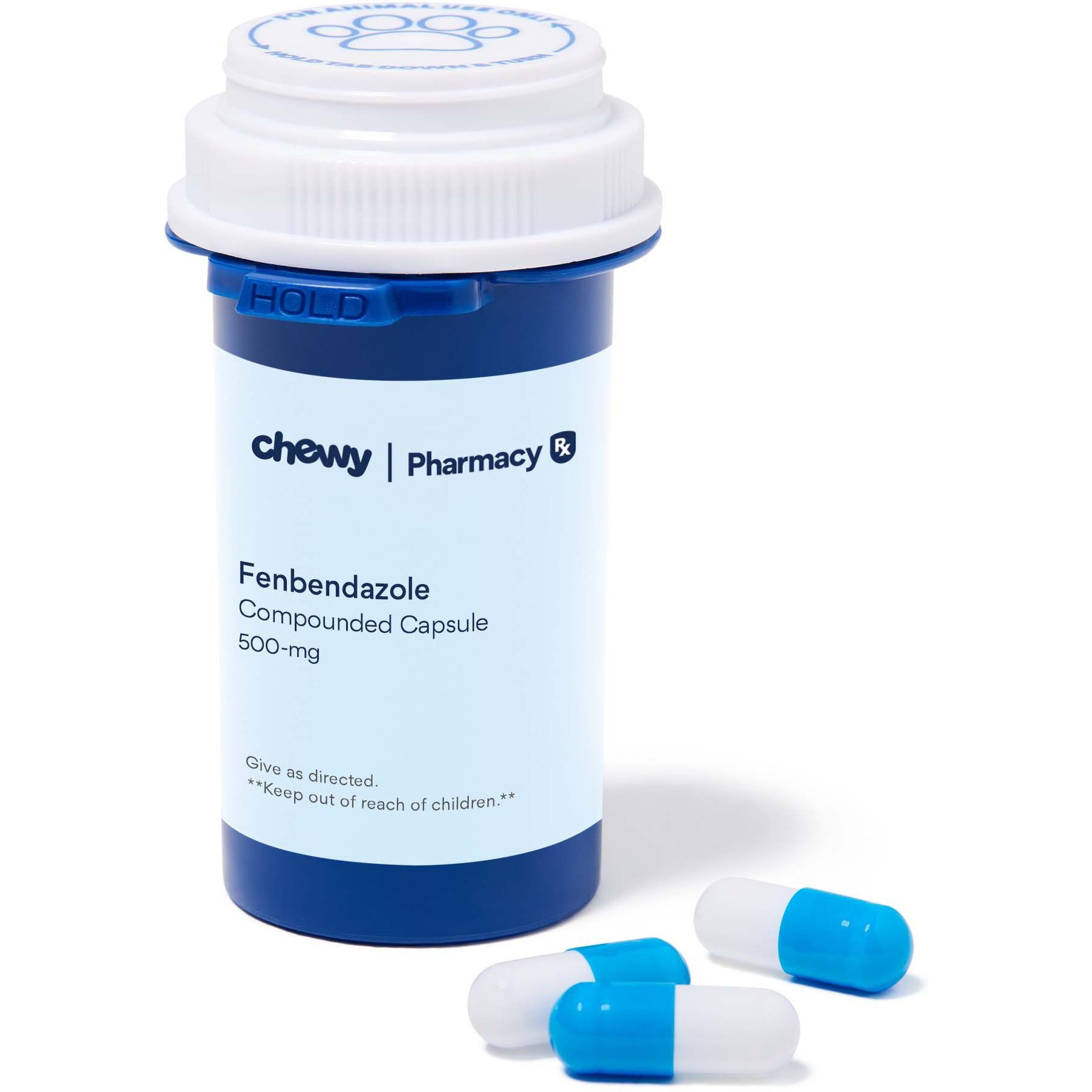fenbendazole capsules vs Other Dewormers: A Clear Comparison
Recognizing the Benefits and Uses of Fenbendazole in Vet Medicine
Fenbendazole has actually established itself as a vital anthelmintic in veterinary medicine. Its capacity to target numerous parasitic infections makes it a valuable tool for vets. The medication's system interferes with crucial cellular processes in bloodsuckers, resulting in efficient treatment end results. Its security profile varies between varieties, requiring mindful factor to consider in its usage (fenbendazole 444). Understanding these dynamics can clarify fenbendazole's wider ramifications in veterinary treatment and ongoing research study right into its possible past traditional applications
Device of Action of Fenbendazole

Typical Parasitic Infections Treated With Fenbendazole
A selection of parasitical infections are successfully treated with fenbendazole, making it a functional choice in veterinary medication. This anthelmintic representative is especially efficient against nematodes, consisting of roundworms and hookworms, which commonly impact canines and cats. It is additionally used for the treatment of cestodes, such as tapeworms, giving a wide range of activity against both kinds of digestive bloodsuckers. Furthermore, fenbendazole is advantageous in taking care of infections triggered by protozoa, especially Giardia, which can bring about stomach distress in pets. Its efficacy encompasses treating particular lungworms in pooches and felines, attending to respiratory health and wellness issues linked to these bloodsuckers. Overall, fenbendazole's capability to target several parasitical varieties makes it an important tool in vet practice, making sure the health and wellness and well-being of family pets affected by these typical infections.
Security and Efficiency in Different Animal Species
The safety and efficiency of fenbendazole differ amongst different animal types, highlighting the importance of species-specific considerations in veterinary medicine. In dogs, fenbendazole is usually well-tolerated and effective versus an array of intestinal parasites, including roundworms and hookworms. For felines, however, its use is much less typical and may call for cautious application due to potential damaging responses.
In animals, such as livestock and lamb, fenbendazole demonstrates effectiveness against numerous endoparasites, contributing to enhanced wellness and productivity. The pharmacokinetics and possible side effects can vary significantly in between species, demanding careful assessment by vets.
Equines additionally respond positively to fenbendazole, specifically for treating strongyles and ascarids, though dose and administration paths should be customized to their unique physiology. As a result, recognizing these distinctions is crucial for enhancing treatment outcomes and making certain pet well-being across diverse varieties.
Administration and Dosage Standards
Correct administration and dose guidelines are important for making best use of the healing impacts of fenbendazole while lessening prospective adverse effects. The dosage typically differs depending upon the varieties being treated, the details condition, and the solution of fenbendazole used. fenbendazole 444. For pets and cats, a common dose is 50 mg/kg body weight, administered once daily for 3 successive days, however vets might change this based upon individual wellness analyses
It is essential to carry out fenbendazole with food to enhance absorption and minimize stomach trouble. The drug is available in numerous kinds, including granules and paste, allowing for flexible administration choices. Checking the pet's action during and after treatment is a good idea to verify effectiveness and safety. Furthermore, right here veterinary guidance is essential to determine the proper period of treatment based on the kind of parasitical infection being dealt with, assuring perfect results for the animal's health and wellness.
Future Perspectives and Research on Fenbendazole
Research on fenbendazole remains to progress, concentrating on its possible applications beyond traditional antiparasitic uses. Recent studies have discovered its effectiveness in treating numerous forms of cancer cells, specifically in vet oncology. Preliminary information suggest that fenbendazole might prevent the growth of lump cells and improve the effects of various other chemotherapeutic agents.
Moreover, scientists are examining its role in taking care of gastrointestinal disorders in animals, highlighting its anti-inflammatory residential or commercial properties. The adaptability of fenbendazole for various species questions about its safety and security accounts and excellent application programs in varied populaces.
As rate of interest expands, there is a need for detailed medical tests to develop evidence-based guidelines for these novel applications. Future research might additionally examine the systems behind fenbendazole's results, potentially leading the way for innovative healing techniques in veterinary medication. The continuous exploration of fenbendazole could considerably boost treatment options for numerous veterinary problems.

Frequently Asked Questions
Is Fenbendazole Safe for Pregnant Animals?
The safety of fenbendazole for pregnant animals stays unsure. While some studies recommend marginal threat, vets normally advise care and typically advise against its usage while pregnant unless the advantages plainly exceed prospective risks.
Can Fenbendazole Be Made Use Of in Animals?
Fenbendazole is generally made use of in animals to deal with various parasitic infections. fenbendazole 222. Its effectiveness against stomach worms useful content makes it a beneficial anthelmintic, adding to improved health and productivity in pets increased for food and fiber
What Are the Negative Effects of Fenbendazole?

The negative effects of fenbendazole may include stomach disruptions, sleepiness, and allergic reactions. In rare situations, a lot more serious responses might happen, necessitating mindful surveillance and appointment with a veterinarian throughout therapy.
Exactly How Does Fenbendazole Contrast to Various Other Dewormers?
Fenbendazole supplies broad-spectrum efficiency against different parasites, usually contrasting positively to various other dewormers. Its Continued special system targets various life phases, making it reliable, while normally offering a positive security profile contrasted to choices available on the market.
Can Fenbendazole Be Used for Treating Cancer Cells in Pet Dogs?
The capacity of fenbendazole in dealing with cancer cells in animals has actually garnered rate of interest. Initial research studies recommend it may inhibit cancer cells cell development, however additionally research is needed to validate its efficacy and security in vet oncology.